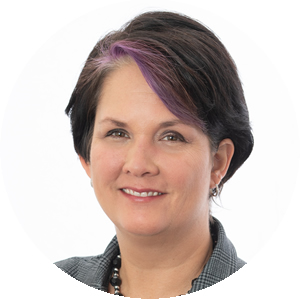“I have a passion to help young people overcome their past and have a brighter future. I have found a career that allows me to do this, as well as continue my personal advocacy for at-risk young people.”

— René Lackey, RN, PyxisCare Nurse Client Advocate and Youth Advocacy Volunteer
What sparked your passion for working with at-risk youth?
I have had compassion for children in need from a very young age. My parents divorced before I was sixteen and I experienced confusion, difficulty trusting and navigating healthy relationships and low self-confidence. However, I sought support and worked to improve my wellbeing, stability, joy and peace. As an adult, it was important to provide a refuge for my children and their friends who had come into our home over the years, longing to be cared for and valued. All this together created a passion in me to help young people overcome their past and have a brighter future. I have found a career that allows me to do this, as well as continue my personal advocacy for at-risk young people.
How do the events of one’s youth affect their adulthood?
Trauma has a long-lasting impact on us. ACES or adverse childhood events are often overlooked, minimized, and misunderstood. Trauma can be specific acute events like abandonment, sexual or physical abuse, but can also be chronic neglect, exposure to substance abuse, or sustained housing or food insecurity. When trauma is not addressed it is stored in the mind and body and has a lasting impact on physical, mental, and emotional well-being. It can cause disease and mental health challenges.
How has the isolation of Covid-19 played a role in general mental and emotional wellbeing?
The Covid-19 pandemic has impacted the mental and emotional wellbeing of children and adults. Many young people are dealing with changes in their social lives, daily routines, and home environment. Economic challenges have led to food insecurity, job loss, and an increase in substance abuse in the home. People of all ages have experienced an increase in stress, anxiety, sadness, and feelings of isolation and despair. People with underlying mental health disorders have faced challenges with access to counseling and other healthy coping mechanisms. The risk of suicide and abuse increased significantly.
What are some keys to supporting the mental and emotional health of others especially coming out of the isolation of Covid-19?
As society learns to cope with the pandemic and emerges from the difficulties faced in a new normal, it’s important to continue to support our clients mental and emotional needs. Ensuring access to counseling, assisting with finding activities out of the home, encouraging safe connection with family and friends and a return to hobbies and work are important. Some who did not previously require medication for anxiety or depression may need medical treatment – at least for a time – to help cope and adjust.
Why are mental and emotional health just as important as the other aspects that PyxisCare evaluates with clients such as medical, financial and legal?
As humans, we are complex. Studies show that up to 85% of disease is related to stress. “Dis-ease” – the word – speaks for itself. Anxiety, stress, depression all have an impact on the physical body. In turn, poor dietary choices, lack of exercise, or quality sleep also impact mental and emotional wellbeing. Taking care of our clients means keeping a close and constant eye on the whole person and offering support and resources to address all aspects of their health.
In addition to your work with PyxisCare, you’re also involved in a non-profit supporting new mothers. What is one of your favorite stories from your non-profit work?
In 2018, I had the honor of meeting Nina (name changed for privacy). She was 10 weeks pregnant. Nina was abandoned at a shelter before she was two and experienced early traumatizing abandonment. She was assigned a birthdate and will never know when she was born or exactly how old she is. This among many other factors impacted her sense of self deeply. When I met her, CPS was investigating abuse in a foster care home where she was housed, and I was asked to support her through her pregnancy. I had the pleasure of walking through this beautiful young mom’s pregnancy providing medical advocacy, transportation to doctors, grocery shopping trips and more. Weeks before her baby was born, Nina shared with me that she wanted me in the room when her son was born. There were educational and cultural barriers to overcome, and she understood little of what was happening in the delivery room. Throughout labor, I was there by her side. Nina required ongoing support and we are still in touch today. She still has a long road ahead of her, but our team has loved them well – planting seeds of truth and guiding her practically and emotionally through life’s challenges. What a joy to just be a small part of her becoming who she was created to be.
In your work with the nonprofit, what skills make you a better Nurse Client Advocate?
This is so fun to answer because honestly it goes both ways. Nursing skills I developed over the years have helped me in my work in the non-profit as much as the reverse. I’ve developed discernment, patience, keen assessment skills, and time management/organization skills. I’ve learned to access resources and rely on others expertise rather than re-inventing the wheel. And most of all, I’ve learned to work in and leverage the expertise of a team, because it takes a village to do this type of work.
